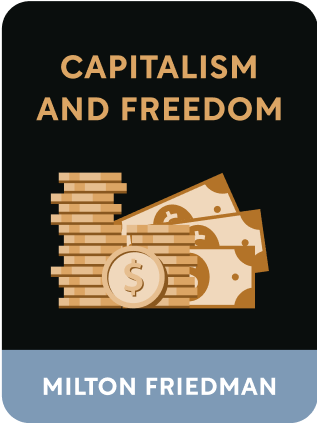

This article is an excerpt from the Shortform book guide to "Capitalism and Freedom" by Milton Friedman. Shortform has the world's best summaries and analyses of books you should be reading.
Like this article? Sign up for a free trial here .
How does Social Security work? Why does Milton Friedman say Social Security doesn’t work?
According to Milton Friedman, Social Security is unnecessary and unjust. Friedman posits that Social Security doesn’t allow people to make the best choices for themselves, and puts an unfair burden on the poorer young.
Read more about Milton Friedman, Social Security, and his views.
Milton Friedman: Social Security
Perhaps the most famous redistributive program in the United States is Social Security. Social Security is a government pension system that pays benefits primarily to elderly and disabled citizens. It is financed by payroll taxes collected on people during the course of their working lives. As a compulsory program, no one has the option of not paying into Social Security.
Essentially, the government mandates that everyone purchase a retirement plan and forcibly takes money from people to compel them to purchase the government plan—not a private alternative. This is the most coercive way that such a system could be designed. Taxpayers are forced to hand over their money to purchase a product that they might very well have elected not to purchase if they had been given free use of their own money.
Even if they were still compelled to purchase a retirement annuity of some sort, many people might have elected a private alternative. But because they are taxed to pay for Social Security, they are deprived of such a choice (and would essentially be paying double if they still chose to purchase a private plan with their after-tax money).
Moreover, the way Social Security is financed represents an unjust redistribution of income from the young to the old. A person retiring today is far more likely to receive more in benefits than they contributed in taxes than a young person just beginning to pay into the system.
This is doubly unfair, as older people are more likely to have accumulated wealth through a lifetime of savings and capital accumulation, whereas young people are less likely to have wealth of their own. Social Security taxes the comparatively poor young to benefit the comparatively well-off old.
In the end, Milton Friedman says Social Security is premised on a paternalistic assumption that government bureaucrats can plan your future better than you can and that you shouldn’t be trusted to handle your own money.

———End of Preview———
Like what you just read? Read the rest of the world's best book summary and analysis of Milton Friedman's "Capitalism and Freedom" at Shortform .
Here's what you'll find in our full Capitalism and Freedom summary :
- The key principles from Milton Friedman's Nobel Prize-winning book
- Why capitalism functions best when it is freed from government restraints
- How forced redistribution schemes are morally unjust






